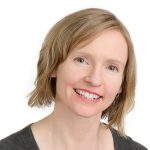
VentureWell Senior Program Officer Victoria Matthew highlights learnings from the OPEN 2022 workshop Studying the Impact of STEM Entrepreneurship Programs on Individuals: We Can Do Better!
I’d been at VentureWell less than a year when a faculty member I knew as a rockstar in the Innovation and Entrepreneurship (I&E) education field disclosed he was concerned about securing tenure. It was astonishing to me that a faculty member who had led the field in designing student-run academic makerspaces was worried his tenure committee might see that very work as a strike against him. Since then I’ve heard several others express concerns that integrating I&E into the curriculum might be career suicide.
I’ve come to understand that these concerns stem from:
(1) the need for a legitimizing research base that demonstrates positive and meaningful student outcomes related to I&E, and
(2) the way many institutions privilege research over teaching when it comes to tenure and promotion.
So what’s a self-respecting, I&E-teaching, tenure-seeking faculty member meant to do? In their recent workshop, Studying the Impact of STEM Entrepreneurship Programs on Individuals: We Can Do Better!, Sarah Zappe, Assistant Dean for Teaching and Learning, Director of Leonhard Center, and Research Professor at Penn State; and Stephanie Cutler, Associate Research Professor at Penn State, shared relevant findings and recommendations. Watch an excerpt from their OPEN session here.
The Workshop and Study
In 2021, Sarah Zappe and Stephanie Cutler from Penn State, along with Lauren Gase, formerly of VentureWell, published a systematic review of the impacts of STEM entrepreneurial support programs (ESPs) on individuals. The workshop provided an overview of the study. In the study, Zappe, Cutler, and Gase used an interactionist model to frame the study, looking at antecedents (i.e., features that already exist about a person or situation, such as demographics, prior knowledge), contexts (for example, did the student engage in a class or a single experience?), and outcomes (such as the impact the ESP might have on a student’s career or development of entrepreneurial mindset). They examined a total of 201 articles from across the disciplines of engineering, business, education, and psychology to answer the following four key questions:
- What are the intended outcomes of the STEM ESPs? What is the context of the ESP?
- If entrepreneurial mindset is an outcome, how is it defined?
- How are individual outcomes assessed?
- What emphasis is placed on diversity and inclusion?
The Findings
Of the 201 publications examined, 124 identify entrepreneurial mindset as an intended outcome, followed by teamwork, communication, creativity, and value. While this alignment across studies might indicate a growing body of knowledge around how to foster entrepreneurial mindset, there are considerable concerns in many of the studies that would indicate otherwise:
- Failure to include definitions for the constructs/outcomes they were examining: For example, if teamwork was being examined, no definition for teamwork was included. This lack of a definition is particularly problematic for constructs like entrepreneurial mindset and creativity, where there is a lack of a shared understanding in the field of what that means.
- Limited connection to research bases in other fields: Even though other fields have extensively researched a number of the constructs being examined (for example, social science literature has long examined constructs such as communication and empathy), there was a failure to draw upon and reference work from these other fields.
- Scant use of validated assessment instruments: Most studies utilized author-developed surveys that lacked strong psychometric properties and were not validated. By the same token, Zappe et al observed limited use of existing, validated instruments. Additionally, many authors failed to discuss the psychometric properties or validity of their instruments, be they homegrown or adopted from elsewhere. These findings are problematic because such approaches limit the ability to apply findings broadly across the entrepreneurship education field.
- Lack of connection of assessment constructs to the programs being examined: Many authors failed to explain why the constructs selected for assessment were connected to the specific activities in their ESP. For example, authors might examine creativity as an outcome of a pitch contest without explaining why they expected that to be an outcome.
- Very limited focus on diversity and inclusion: Of the 201 publications examined, only one focused on women, one focused on nontraditional students (in this case, veterans), and there were no studies that looked at either race/ethnicity or first generation students. With regard to analysis, 11 compared results by gender and three compared results by race/ethnicity. Additionally, demographics were typically not provided, the inclusion of which is seen as foundational for social science research papers.
The Recommendations
This lack of a solid research base for entrepreneurship education places faculty in the compromising position of designing for the inclusion of I&E content in their classes without the guidance of proven exemplars. This also makes it challenging for faculty to argue for the importance of including I&E, since there is limited robust evidence of the benefits to students.
However, Zappe and Cutler are believers in the James Baldwin field of thought: “Not everything that is faced can be changed. But nothing can be changed until it is faced.” Indeed faculty can see these findings as both a call to action and a roadmap of critical steps to take on their entrepreneurship education research journey:
- Provide a definition for your constructs/outcomes, especially if those constructs—like entrepreneurial mindset—mean different things to different people.
- Draw upon research bases in other disciplines. This will strengthen your understanding of the constructs you are examining and will strengthen your paper.
- Where possible, measure constructs using existing, validated assessment instruments.
Describe what your expected outcomes are and why. - Incorporate demographics into your study so that your readers understand your population. This will also mean you can examine your findings in different ways (e.g., by gender, race/ethnicity, etc.).
- Consider the benefits (both to you and your ESP, and the field) of focusing your research on equity and inclusion.
- Seek support for your efforts, which might include:
- Collaborating with social science or education faculty who have prior experience with the constructs you are examining or the methodological approaches you wish to adopt.
- Engage in professional development on assessment and research approaches. Workshops may be offered right on your own campus as well as by professional organizations you are a part of. For example, ASEE in partnership with the Kern Family Foundation is offering an Archival Publication Authors Workshop in July 2022.
We wish you luck on your I&E education research journey, and trust that by following these steps you will be equipped to not only examine your own I&E integration efforts, but also build the field while meeting the research requirements of your institution.
Watch an excerpt from Zappe and Cutler’s workshop here and view their complete research paper, A Systematic Review of the Impacts of Entrepreneurial Support Programs in Science, Technology, Engineering, and Math Fields, here.
In the coming months we will share more research from I&E faculty that can help you both build a case for, and help you hone, your I&E teaching efforts and advance your educational research.
 Victoria Matthew leads VentureWell’s Community of Practice and social learning initiatives, with a focus on providing faculty with resources, tools, and a support network. Previously, Victoria led VentureWell’s collaboration with the Bill and Melinda Gates Foundation’s Frontier Set and the NSF-funded Pathways to Innovation program. She also worked for more than a decade in higher education—developing and managing degree programs; teaching online; and recruiting and training online faculty.
Victoria Matthew leads VentureWell’s Community of Practice and social learning initiatives, with a focus on providing faculty with resources, tools, and a support network. Previously, Victoria led VentureWell’s collaboration with the Bill and Melinda Gates Foundation’s Frontier Set and the NSF-funded Pathways to Innovation program. She also worked for more than a decade in higher education—developing and managing degree programs; teaching online; and recruiting and training online faculty.
OPEN 2023 takes place March 21-23 in the D.C. metro area. OPEN brings together faculty, administrators, staff, and students from the STEM fields to share innovation and entrepreneurship experiences and research, learn best practices, and forge dynamic new relationships. Learn more and register now at venturewell.org/open!